第85章 CHAPTER XII.(2)
There was very little game in the neighbourhood, as it was completely overrun by the Arabs and their flocks; and we were to march about fifty miles E.S.E. before we should arrive in the happy hunting-grounds of the Base country, where we were led to expect great results. Previous to leaving Wat el Negur I had thoroughly drilled my Tokrooris in their duties as gun-bearers, which had established a discipline well exemplified in the recent affair with the elephants. I had entrusted to them my favourite rifles, and had instructed them in their use; each man paid particular regard to the rifle that he carried, and, as several were of the same pattern, they had marked them with small pieces of rag tied round the trigger guards. This esprit de corps was most beneficial to the preservation of the arms, which were kept in admirable order. Mahomet, the dragoman, rode my spare horse, and carried my short double-barrelled rifle, slung across his back, in the place of his pistols and gun, which he had wilfully thrown upon the desert when leaving Berber. As the horse was restive, and he had placed the hammers upon the caps, his shirt caught in the lock, and one barrel suddenly exploded, which, with an elephant-charge of six drachms of powder, was rather startling, within a few inches of his ear, and narrowly escaped the back of his skull. Florian possessed a single-barrelled rifle, which he declared had accompanied him through many years of sports: this weapon had become so fond of shooting, that it was constantly going off on its own account, to the great danger of the bystanders, and no sooner were we well off on our journey, than off went this abominable instrument in a spontaneous feu de joie, in the very midst of us! Its master was accordingly OFFlikewise, as his horse gave the accustomed kick, that was invariably the deed of separation. However, we cantered on ahead of the dangerous party, and joined the aggageers, until we at length reached the table land above the Settite valley. Hardly were we arrived, than we noticed in the distance a flock of sheep and goats attended by some Arab boys. Suddenly, as Don Quixote charged the sheep, lance in hand, the aggageers started off in full gallop, and as the frightened flock scattered in all directions, in a few moments they were overtaken by the hunters, each of whom snatched a kid, or a goat, from the ground while at full speed, and placed it upon the neck of his horse, without either halting or dismounting. This was a very independent proceeding; but, as the flock belonged to their own tribe, they laughed at the question of property that I had immediately raised, and assured me that this was the Arab custom of insuring their breakfast, as we should kill no game during that day. In this they were mistaken, as I killed sufficient guinea-fowl to render the party independent of other food.
In a day's march through a beautiful country, sometimes upon the high table land to cut off a bend in the river, at other times upon the margin of the stream in the romantic valley, broken into countless hills and ravines covered with mimosas, we arrived at Ombrega (mother of the thorn), about twenty-four miles from Geera. In that country, although uninhabited from fear of the Base, every locality upon the borders of the river has a name.
Ombrega is a beautiful situation, where white sandstone cliffs of about two hundred feet perpendicular height, wall in the river, which, even at this dry season, was a noble stream impassable except at certain places, where it was fordable. Having descended the valley we bivouacked in the shade of thick nabbuk trees (Rhamnus lotus), whose evergreen foliage forms a pleasing exception to the general barrenness of the mimosas during the season of drought. We soon arranged a resting-place, and cleared away the grass that produced the thorn which had given rise to the name of Ombrega, and in a short time we were comfortably settled for the night. We were within fifty yards of the river--the horses were luxuriating in the green grass that grew upon its banks, and the camels were hobbled, to prevent them from wandering from the protection of the camp fires, as we were now in the wilderness, where the Base by day, and the lion and leopard by night, were hostile to man and beast. The goats, upon which we depended for our supply of milk, were objects of especial care: these were picketed to pegs driven in the ground close to the fires, and men were ordered to sleep on either side.
We had three greyhounds belonging to the Arabs, and it was arranged that, in addition to these guards, a watch should be kept by night.
The dense shade of the nabbuk had been chosen by the Arabs as a screen to the camp-fires, that might otherwise attract the Base, who might be prowling about the country; but, as a rule, however pleasant may be the shade during the day, the thick jungle, and even the overhanging boughs of a tree, should be avoided at night. Snakes and noxious insects generally come forth after dark--many of these inhabit the boughs of trees, and may drop upon the bed of the unwary sleeper; beasts of prey invariably inhabit the thick jungles, in which they may creep unperceived to within springing distance of an object in the camp.